Related Research Articles

Arthur Hugh Clough was an English poet, an educationalist, and the devoted assistant to Florence Nightingale. He was the brother of suffragist Anne Clough and father of Blanche Athena Clough who both became principals of Newnham College, Cambridge.
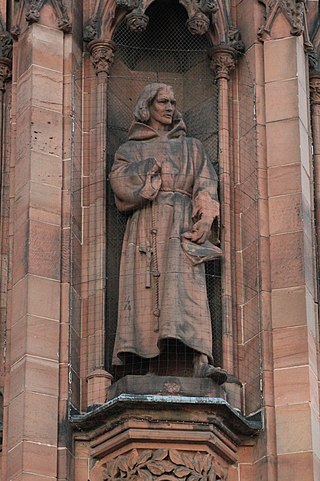
William Dunbar was a Scottish makar, or court poet, active in the late fifteenth and early sixteenth centuries. He was closely associated with the court of King James IV and produced a large body of work in Scots distinguished by its great variation in themes and literary styles. He was probably a native of East Lothian, as assumed from a satirical reference in The Flyting of Dumbar and Kennedie. His surname is also spelt Dumbar.
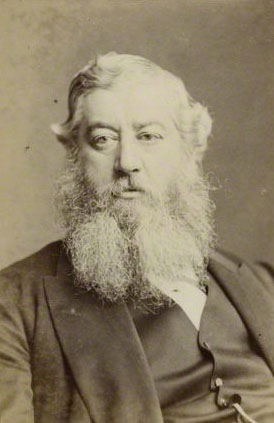
George Ward Hunt was a British statesman of the Conservative Party who was Chancellor of the Exchequer and First Lord of the Admiralty in the first and second ministries of Benjamin Disraeli.

Arthur William Symons was a British poet, critic and magazine editor.
The spasmodic poets were a group of British poets of the Victorian era. The term was coined by William Edmonstoune Aytoun with some derogatory as well as humorous intention. The epithet itself is attributed, by Thomas Carlyle, to Lord Byron.
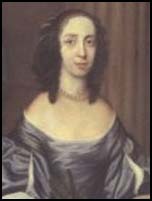
Lucy Hutchinson was an English translator, poet, and biographer, and the first person to translate the complete text of Lucretius's De rerum natura into English verse, during the years of the Interregnum (1649–1660).

James Henry was an Irish classical scholar and poet.

A verse novel is a type of narrative poetry in which a novel-length narrative is told through the medium of poetry rather than prose. Either simple or complex stanzaic verse-forms may be used, but there will usually be a large cast, multiple voices, dialogue, narration, description, and action in a novelistic manner.
The Alliterative Morte Arthure is a 4346-line Middle English alliterative poem, retelling the latter part of the legend of King Arthur. Dating from about 1400, it is preserved in a single copy in the early 15th-century Lincoln Thornton Manuscript, now in Lincoln Cathedral Library.
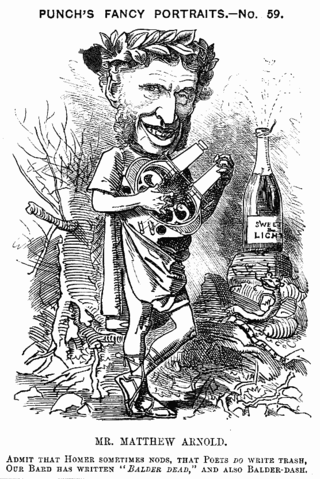
On Translating Homer, published in January 1861, was a printed version of the series of public lectures given by Matthew Arnold as Professor of Poetry at Oxford between 3 November and 18 December 1860.
Nationality words link to articles with information on the nation's poetry or literature.
Nationality words link to articles with information on the nation's poetry or literature.
Nationality words link to articles with information on the nation's poetry or literature.

"Thyrsis" is a poem written by Matthew Arnold in December 1865 to commemorate his friend, the poet Arthur Hugh Clough, who had died in November 1861 aged only 42.
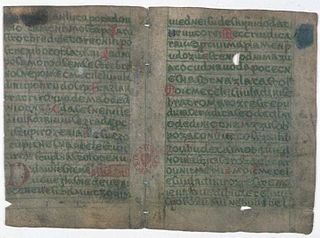
The Dvůr Králové and Zelená Hora manuscripts are literary hoaxes purporting to be epic Slavic manuscripts written in Old Czech. They first appeared in the early 19th century.
Cormac Mac Con Midhe, a.k.a. Cormac mac Cearbhaill Mac Con Midhe was an early Modern Irish poet.
"The Scholar-Gipsy" (1853) is a poem by Matthew Arnold, based on a 17th-century Oxford story found in Joseph Glanvill's The Vanity of Dogmatizing. It has often been called one of the best and most popular of Arnold's poems, and is also familiar to music-lovers through Ralph Vaughan Williams' choral work An Oxford Elegy, which sets lines from this poem and from its companion-piece, "Thyrsis".
Allan Arthur Willman(variant spellingsAlan & Wilman; néAllan Arthur Simpkins; 11 May 1909 Hinckley, Illinois 7 May 1989 Cheyenne, Wyoming) was an American classical pianist, composer, music pedagog at the collegiate level, and longtime chairman of the Department of Music at the University of Wyoming. Willman was a vanguard creator and influential exponent of twentieth-century contemporary music. As chairman of the music department at the University of Wyoming, he is credited with rapidly expanding music arts within the institution. He led the development of a more comprehensive Music Department for aspiring academicians and professionals in performance, composition, education, and musicology. Between 1940 and 1950, enrollment in the Music Department quadrupled. Willman was founder of the Wyoming Music Teachers Association; and—with Wyoming businessman and composer George William Hufsmith, Jr. (1924–2002), and Casper conductor Ernest Gilbert Hagen (1913–2000)—Willman was co-founder of the Grand Teton Music Festival in 1962.
William Ross was a Scottish writer of Romantic poetry in Scottish Gaelic from the Isle of Skye and a parish schoolmaster, who is often referred to as, "The Bard of Gairloch." According to Derick S. Thomson, "Ros is justly regarded as the leading poet of love of the eighteenth century." Despite being widely viewed, however, as a, "love-lorn romantic who died of unrequited love", Ross was also very capable of poking fun at himself. More than two hundred years after his death, Ross remains a highly important and admired figure in Scottish Gaelic literature. Along with his iconic eulogy for the 1788 death of Prince Charles Edward Stuart, one of Ross' most famous songs is the lament, Cuachag nan Craobh, the tune of which is now known throughout the Anglosphere as The Skye Boat Song, based on multiple sets of Scottish English lyrics composed a century later.
"Say Not the Struggle Naught Availeth" is an English poem by Arthur Hugh Clough. It was written in 1849, and first published in The Crayon, an American art journal, in August 1855, under the title "The Struggle". Clough published the poem without a title in 1862. In The Poems and Prose Remains of Arthur Hugh Clough, 1869, the poem was titled "Say Not the Struggle Nought Availeth".